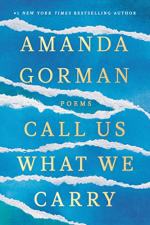
|
| Name: _________________________ | Period: ___________________ |
This test consists of 15 multiple choice questions and 5 short answer questions.
Multiple Choice Questions
1. In "Lucent," what is the most beautiful star?
(a) Nothing but a monster.
(b) A friend.
(c) A lover.
(d) A mirage.
2. In "Another Nautical," what are words like, in a similar way to water?
(a) A type of loving.
(b) A type of finding.
(c) A type of dying.
(d) A type of washing.
3. In "Pre-Memory," how does every memory start?
(a) By knowing thyself.
(b) By poking a scar until it speaks.
(c) By finding a tree.
(d) By finding a carwash.
4. In "Lighthouse," what have we lost sight of even though we have never met?
(a) Each other.
(b) The moon.
(c) The stars.
(d) The sun.
5. In "Surviving," what might not we be fully sure of?
(a) All that we are.
(b) All that we may be.
(c) All that we can not be.
(d) All that we wanted to be.
6. In "Essex I," what were whales killed for?
(a) Blubber.
(b) Brains.
(c) Tongues.
(d) Skin.
7. In "Another Nautical," what suffix does the poet consider?
(a) -friend.
(b) -ship.
(c) -putting.
(d) -sitting.
8. In "When," how are we like our joy?
(a) We are not wrong.
(b) We are fleeting but certain.
(c) We are true but fair.
(d) We are tall but fair.
9. In "At First," what did we become paid professionals of?
(a) Pain.
(b) Gardening.
(c) Eating.
(d) Cooking.
10. In "Back to the Past," what is the closest we get to time travel?
(a) Our friends returning.
(b) Photos.
(c) Our lovers dying.
(d) Our fears softening.
11. In "Captive," what floods the streets?
(a) Water.
(b) Animals.
(c) Trees.
(d) Friends.
12. Who does the poet mention by name in "Pre-Memory?"
(a) Marianne Hirsch.
(b) Michael Rinder.
(c) Helen Begley.
(d) Enela Rigora.
13. In "Earth Eyes," what is clamped down?
(a) Our hair.
(b) Our conscience.
(c) Our jaw.
(d) Our nails.
14. In "Every Day We Are Learning," what is one think we learn?
(a) How to love better.
(b) How to live with essence, not ease.
(c) How to forgive ourselves.
(d) How to cook.
15. In "Lighthouse," what is no human to us in the last line?
(a) A lover.
(b) A stranger.
(c) A friend.
(d) A winner.
Short Answer Questions
1. In "Hephaestus," what have we fallen into?
2. In "School's Out," what does Gorman warn to beware of?
3. In "Ship's Manifest," which of the following does Gorman compare the book to?
4. In "Compass," what is the year the size of?
5. In "The Shallows," how does Gorman describe us?
|
This section contains 407 words (approx. 2 pages at 300 words per page) |

|




